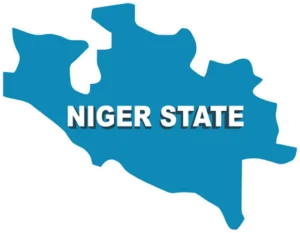Changing the orientation of Nigerian public finance to eliminate misplacement of priorities
Setting priorities is one crucial part of life when consideration is given to the subject of goal setting. The importance of accomplishing great successes has been noted by social observers as a subject that is much defined by the ability to set goals and deploy the right resources towards these goals with the commensurate level of priorities. Just as this speaks to the personal level of life, it moves to the micro level of relevance and extends to the broad architecture of macro level of decision making. The ability to channel resources to the right goals based on priorities is one cardinal character of human as a rational being as defined by economic theories. It is therefore not out of place to assert that the socio-economic and political well being and development of a nation is a function of how well the custodians of the political architecture and the commonwealth are able to channel resources, both economic and human, to the right priorities for upward growth and development to take course.
By the foregoing, it would be arguable that the failure of Nigeria despite the abundance of human and economic resources to experience the most expected and desired development, is attributable to the misplacement of priorities. The worsening records of political and socio-economic profiles are much undesirable effects of the dysfunctional channeling of resources handy to the Country. The years of profligacy in government by the custodians of the politico-economic architecture of the Country have been a backward force of negative impetus which has more or less pitched the Country on the radar of precipice. It is glaring that the incomplementary patterns of channeling resources have thus yielded counterproductive results over the years on critical decisions bordering on the Country’s socio-economic and political framework.
The effects of the displacement of priorities have had far reaching effects on the Nigerian economy. In fact, it is arguable that the wobbling economy owes to misplacement of priorities which more or less have led to records of wastage and unproductive expenditures. The ability to decipher circumstances and address same with the right tool and appropriate resources at the highest level of efficiency to attain the best results achievable, is a virtue of management dexterity that remains essential to those steering the governmental course of a nation. The ability of the Government of the advanced world to comprehend and articulate this essentiality, as well as, their navigating force to walk along this patterns have yielded results that have launched their development course for far reaching successes.
The absence of this reality in Nigeria has been a bane which has taken the Country far back from what level of success that should have been recorded so far, particularly with the yearnings of present demands. The Federal Executive Council (FEC) on Wednesday went ahead to approve over N8.1 billion for the rehabilitation of the Federal Secretariat, Phase I, in Abuja. This was part of the N82bn approved for the completion of infrastructure projects within the Federal Capital Territory (FCT), Abuja. The Minister of the FCT, Mohammed Bello, who disclosed this while briefing State House correspondents at the end of Wednesday’s Council meeting presided over by President Muhammadu Buhari at the Council Chamber, Presidential Villa, Abuja, had said the approved contracts include the rehabilitation of the Federal Secretariat Abuja. His words: “The third memo is for the rehabilitation of phase I of the Federal Secretariat, which involves electro-mechanical systems, water systems as well as other general rehabilitation. This is a secretariat that was inaugurated in 1993, quite a long time ago so we are doing massive rehabilitation of that at a total sum of N8, 110, 665, 676.76 and the completion period is 24 months.” Other projects Bello stated include those for the total overhaul of a 1500 KVA generating plant, for the Abuja Environmental Protection Board at the cost of N110 million, an upward review of contract sum for the extension of the inner Southern Express Way at the sum of N47.6 billion as well as the review of the consultancy provision for the Independence and Constitution Avenue in the Central Business District of Abuja, at the coat of N131.4 million.
Also briefing, the Minister of Humanitarian Affairs, Disaster Management and Social Development, Sadiya Farouk, said Council approved the sum of N922.8 Million for the purchase of fertilizer to assist states affected by insurgency and the 2018 flood disaster. According to her, the benefiting States, which include Adamawa, Borno and Yobe States, would receive liquid brands of NPK fertilizer, as assistance to farmers. The Minister said, “Today (yesterday) at council, the Ministry of Humanitarian Affairs, Disaster Management and Social Development, presented a memo for the approval of award of contract for purchase of NPK 20:10:10 fertilizer under the emergency agricultural intervention for states affected by conflicts, insurgency and also the 2018 flood disaster in the total sum of N922, 803, 393.26 and council approved the award of the contract. The benefitting States are Yobe, Adamawa and Borno. Initially we were supposed to give the NPK 20:10:10 fertilizer but now we are going to provide the liquid fertilizer to the benefiting States and the quantity is about 259, 000 litres of that particular product.”
On his part, the Minister of Power, Saleh Mamman mentioned that council approved two memos he presented. He said, “One was the procurement of four number of 150 NBA 331 3233 power transformers for TCN in favour of Messrs Gilbo Nigeria Ltd. These transformers which were to replace the transformer that had been in system for the past 35 years in order to improve quality or power supply to the National Grid. So, this has been graciously approved by the federal executive council. The second one is the approval for procurement of the contract for the production and delivery of one million sterilised metres grips embossed for three metres test stations in Oshodi, Lagos, Port Harcourt and Kaduna for the sum of N155,227,619.18.”
It is important for the custodians of the Government framework to come to understanding of how to prioritise the distribution of the commonwealth in enlightened patterns that gives expression to the reality of development. Choices of expenditures at this time should largely be tailored to suit the demands of the present economic situations of the Country. The demands of the economy at this time is undoubtedly for more of capital projects which are well defined as against overheads which poor maintenance and uncoordinated governance culture of the past years have pitched the Country to, along the borders of precipitating flow with overbearing burdens of financial irrationality. It would be observed that the sum of N8.1 billion is too enormous and apparently a lopsided appendage for rehabilitation of a secretariat against other capital projects yearnings for funds. It is therefore imperative that the navigating patterns of public finance in the Country be redirected by the Government to respond according and appropriately to priorities of present demands. Changing the orientation of budgetary definitions is thus paramount to carve an edge to reasonably pull the Country out of the mire of deep mess it is presently wallowing in.




